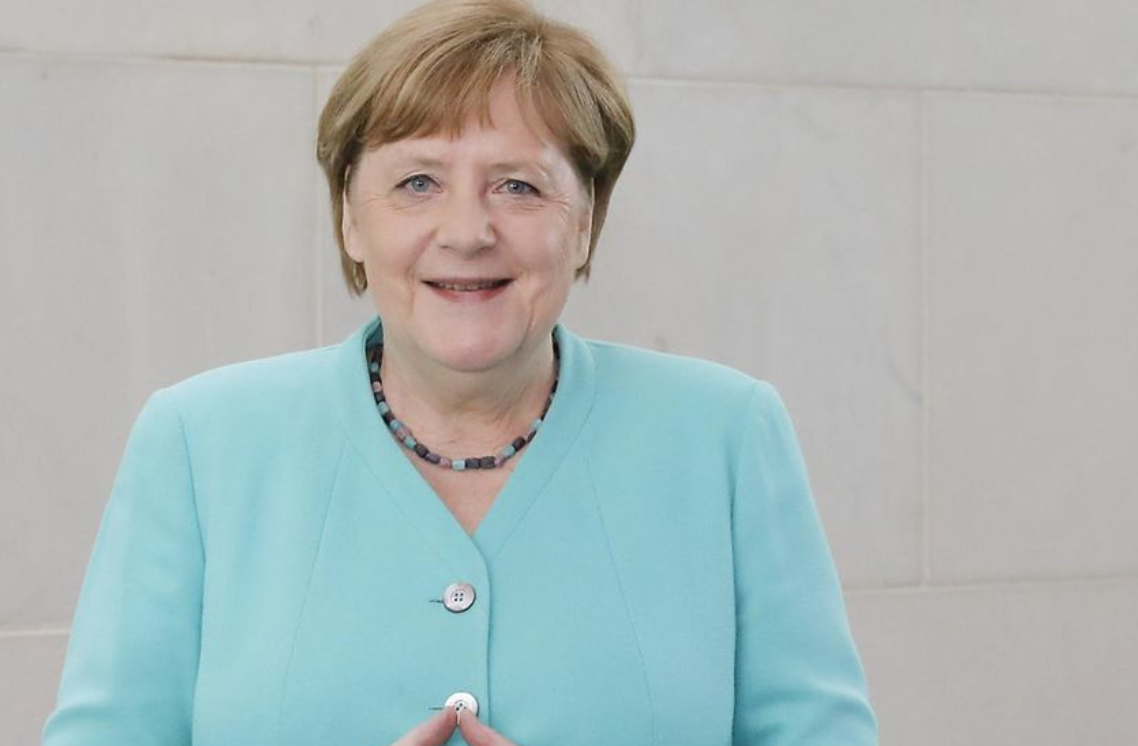Why is the ESM so Controversial Only in Italy? A conversation with Klaus Regling
The former managing director of the ESM discusses the long-term consequences of the Euro crisis and its aftermath.

All the then 19 euro area member states’ governments approved a revision of the ESM treaty on January 27, 2021. More than two years later, only one single parliament has not ratified that revision to make the reform effective: Italy.
The ESM is the acronym for the European Stability Mechanism, a tool that euro area governments created during the 2011-2012 euro crisis to support member states struggling to access credit in financial markets.
The reform makes the ESM more effective in dealing with cross-national banking crises, as a common backstop for the so-called Single resolution fund (SRF). The reform also includes a revision of eligibility criteria to access ESM precautionary credit lines.
On 4th July 2023, in Italy, a parliamentary majority voted to suspend for four months any discussion about the ratification of the ESM reform. There is no technical reason behind the Italian skepticism about the treaty revision.
Giorgia Meloni, Italian prime minister, has commented that “this is not the right time to discuss the ESM in the parliament”. In May 2022, before the general election campaign started, Meloni announced on tv a “blood oath” with her voters never to apply for ESM credit lines, as Greece, Spain, Irland, and Portugal did in 2011-2012.
The absence of any discussion of the details of the treaty reform reveals that behind the Italian hostility to the ESM, there is a decade-long legacy of 2011-2012 traumatic events when Italy happened to get on the brink of financial distress due to the late Silvio Berlusconi’s government before a technocratic cabinet led by Mario Monti took over. Giorgia Meloni was a junior minister with Berlusconi, between 2008 and 2011.
Klaus Regling, a German national, worked for 40 years at the heart of European institutions. The final appointment of his career was probably the most challenging: He served as ESM managing director until October 2022, when Pierre Gramegna was appointed as his successor.
We discussed with Klaus Regling why the ESM is still so controversial in Italy and what is an assessment of the ESM’s first decade of supporting eurozone integrity.
If the ESM treaty reform is not ratified and effective, the eurozone “may not be able to respond as quickly as needed to unexpected events, and a real crisis is always a surprise”, mister Regling argues. To make the conversation clearer we do not distinguish between the initial EFSF (European Financial Stability Facility) and its current version, the ESM (European Stability Mechanism).

There was a debate about Greece leaving in 2010-2011 and again in 2015. I think that without the creation of the ESM, probably Greece and maybe one or two other countries would have left.
Mister Regling, why do so many people in Italy think the ESM is a threat to national sovereignty? In other words, what is the legacy of the 2011-2012 euro crisis in terms of trust in EU financial institutions?
I think there is a positive legacy and there is a negative legacy, some people focus on the first and others focus on the second. Therefore, it's very important to have a complete picture and a holistic view of what happened.
The positive part is that thanks to the ESM, in 2011-2012 it was possible to keep the euro area together.
It all worked because the countries that had serious economic problems adopted the necessary reforms, and implemented adjustments, which meant reducing fiscal deficits and working on the real estate bubble in Spain and Ireland. Also, competitiveness was a problem in all five countries that received loans from the ESM (Greece, Portugal, Spain, Ireland, and Cyprus).
Without the ESM money, those countries would have been forced to do the necessary adjustment overnight. Once international financial markets stop providing capital, governments can only spend the money they receive from their citizens through tax revenues.
In the case of Greece, there was a gap between tax revenues and expenditures of almost 15% of GDP. So, if there had been no rescue mechanism, the moment capital markets stopped providing financing, the government would have been forced to reduce public expenditures immediately by 15% of GDP to the level of revenues. That would have been a brutal adjustment.
ESM money didn't eliminate the necessary adjustment, but it allowed the adjustment to be spread over several years. This is exactly how also the International Monetary Fund works globally. And that's what we did in Europe, with ESM money we kept all the countries inside the monetary union.
How close did the Eurozone go to losing one or more members?
There was a debate about Greece leaving in 2010-2011 and again in 2015. I think that without the creation of the ESM, probably Greece and maybe one or two other countries would have left.
Which countries?
Probably Portugal, and maybe even Ireland. In the last 10 years, Ireland has been in really good economic conditions, so it's hard to imagine now that this was a close call in 2011 because it had a big financing gap.
International markets were no longer willing to finance Ireland or Portugal. If Greece had left, then spillover effects would have been likely, because markets would then have understood that the membership of the monetary union was not necessarily forever.
Well, the adjustment worked, thanks to the governments’ determination to implement the necessary reforms and thanks to the populations’ willingness to accept those reforms; but also thanks to the ESM. Others also chipped in smaller amounts, like the IMF. But the main part came from the ESM. Decisions by the ECB, under the leadership of Mario Draghi, were also crucial to calm down financial markets.
So, that is the positive part. The negative part is that the adjustment was also difficult, and very painful: many people lost their jobs, salary, wages and pensions were reduced, GDP dropped, and unemployment went up. That is the negative part.
Some people remember the first part and others focus on the second part, as it happens in Italy.
When I travel today to Portugal, Spain, Ireland, Cyprus and even Greece, most people are grateful: they know their countries had problems that had to be tackled through reforms, and they appreciate that their European partners made money available through the ESM so that they gained time to get out of those problems.

There is no reason to worry about debt sustainability in the near-term: when Italy goes to the financial market today and issues 10-year-bonds, the nominal interest rate it pays is still lower than it was ten years ago.
On the opposite, in Italy many people and many politicians focus on the hardship of the adjustment programs, and they have a very negative opinion of the ESM even if Italy has never asked for financial support. Do you think that Italy was, or might be, on the brink of losing access to financial markets, and asking for ESM money?
Ten years ago, countries like Greece, Portugal and Ireland had large current account deficits, which means they had to import capital. In Greece, the current account deficit was almost 15% of GDP. Every year. Contrary to that, Italy had current account surpluses and therefore exported capital. That’s why I have always said that Italy was in a different category: its main problem has been low growth for some time, but this is not the hurdle the ESM is designed to fix.
Economically, Italy was in a different situation compared to Greece, Ireland, and Spain, much less dependent on international financial markets.
However, if there had been no ESM, and if Greece and perhaps other countries had been forced to leave the monetary union, that could have become a signal for markets to also attack other countries like Italy.
Therefore, Italy should appreciate that ESM programs were needed for other countries but protected the entire euro area: if the monetary union had started to crumble, I don't know what would have happened in the next crisis to Italy, and to the euro area as a whole.
In 2011-2012, Italy preferred to go through a harsh but brief season of structural reforms instead of asking for financial support. Then, once the financial pressure was over, also the reform process slowed. Do you think that an ESM adjustment program was a missed opportunity for Italy?
Probably. But that's true for many countries. I also sometimes wish Germany would have had an ESM- or IMF-type adjustment program: today’s slow growth is also the result of a lack of reforms in Germany during the last decade.
An ESM adjustment program can help a country to remain committed to reforms in the medium term. However, it is worth making clear that the ESM is mainly designed to fight crises, and not to enhance a country’s growth potential.
Spain is a slightly different story: in 2012-2013 the Spanish government used ESM money to restructure its banking sector which today is much stronger. Maybe, if Italy had followed the same path its banking sector could have benefited as well.
In different crises, EU member states and institutions reacted with different approaches: they fixed the 2011-2012 euro crisis with the stick (the ESM adjustment programs) and they reacted to the Covid pandemic with a carrot (the Next Generation EU Fund). Do you prefer the stick to the carrot?
I would frame that distinction in a different way than stick vs carrot. The ESM is a firefighter, it's like the International Monetary Fund. Next-generation EU is like the World Bank. The World Bank is active in most of its member states, even if they do not face any crisis, with programs to restructure the economy and strengthen growth. That's the idea behind Next Generation EU, which is very, very positive. But it's not a crisis-fighting facility, even though it was created in response to a crisis.
You mentioned the ESM support to Spain to restructure its banking sector. One of the reasons why European governments have decided to amend the ESM Treaty was to make it more effective in case of a banking crisis, with the ESM behind the Single Resolution Fund (SRF). When you started this revision process, you were worried that the EU was going to face a banking crisis shortly?
Europe started to work on the banking union in 2012 and that was a very positive development. We now have a common European supervisor for the largest European banks and it's working very well: in the last few months we saw banking problems in the US and Switzerland, but not in the European Union, thanks to all the reforms undertaken over the last 10 years.
However, something is missing: we still need a common backstop for the Single Resolution Fund (SRF). The SRF works similarly to the US FDIC: it collects contributions from its member banks to deal with banking crises. But when the crisis is big, the FDC can count on a credit line with the US Treasury.
In the euro area and the EU we have no common treasury. That's why the idea to give the SRF a credit line with the ESM emerged: it would only be activated in the case of a big crisis, either a large bank needs to be resolved or a large number of smaller banks and the €80 billion the SRF has accumulated so far might not be enough.
That's why the ESM should back the SRF, but we need an ESM Treaty change to make that possible because according to the initial ESM Treaty, which is currently in place, the ESM is allowed to provide money only to its Member States, not to any European institution.
One of the arguments that I heard from people in the Italian center-right parties is that if Italy ratifies the ESM Treaty, then the probability of using a fully functional ESM increases. What do you think about that?
That may be true, but I would argue that is good for Europe. If a crisis like the one we experienced 12 years ago hits, who else would help a country with the money it needs? The IMF is too small and very reluctant to help European countries.
A crisis could happen anywhere, maybe in a small country with a big banking problem that – if not solved – could create negative spillovers in other euro area member states, including Italy.
So, it's not a question of Italy using the money directly, but Italy would also benefit from a reformed ESM if a problem pops up anywhere else in the EU.

I also sometimes wish Germany would have had an ESM- or IMF-type adjustment program: today’s slow growth is also the result of a lack of reforms in Germany during the last decade.
Do you think that the current high-interest rates environment makes future crises more likely? ECB monetary tightening will increase dramatically the cost of financing for highly indebted countries like Italy.
Since the ECB has started to react to stubborn inflation, I have always argued that higher interest rates would not immediately lead to a new euro crisis.
In Germany and other countries, many journalists, and also quite well-known academics, have argued that the ECB’s interest rate increases would lead to the next euro crisis. I said publicly that this is nonsense.
There is no reason to worry about debt sustainability in the near-term: when Italy goes to the financial market today and issues 10-year-bonds, the nominal interest rate it pays is still lower than it was ten years ago. Of course, many countries need to reduce fiscal deficits over the medium-term because public debt increased so much as a result of the pandemic and the war in Ukraine.
Importantly, the eurozone does not have the kind of macroeconomic imbalances it had in 2011-2012: back then, some countries had huge current account deficits that needed to be financed on international markets; wages and salaries had increased too quickly compared to the productivity of labor, which translated into a loss of competitiveness that impaired a country’s capability to export.
The current major macroeconomic challenge for the euro area is persistent inflation.
Yes, but inflation is not destabilizing in the same way as macroeconomic imbalances are. All euro area countries face inflation, which is a symmetric shock. It's not something that creates trouble in some countries but not in others, which is a very different situation compared with 2011-2012.
Nowadays, is there a stigma attached to a request for ESM support that reduces its effectiveness?
Financial markets look very positively at the ESM, that's clear. We know that from many conversations with investors and rating agencies have written about that extensively. The very existence of the ESM gives markets assurance that when there is a problem, money can be made available to countries and countries are not on their own. They can get help.
One example is what happened when the pandemic hit in 2020. The European Commission developed the Next Generation EU and SURE programs, the ESM created the pandemic crisis support. This new tool was never used because of ample liquidity everywhere and because of the political stigma that is still attached to the ESM in some countries. But financial markets and rating agencies assessed this tool very positively because it provided a kind of insurance to all member states of the euro area.
That's why I differentiate between market stigma, which does not exist, and political stigma, which in some countries does exist, undeniably unfortunately, because some people focus on the negative aspects of adjustment programs and not on the positive results that follow.
This is not surprising, because that is what has often happened with the IMF. For markets, it's very positive that the IMF exists, but the IMF is never popular in member countries because the population focuses mainly on the painful adjustment to overcome pre-existing problems.
You spent four decades working on European integration. What's the main difference in the European project between now and the moment you started your career in Brussels?
The biggest change is that, when I started in the early 80s, there were only 12 member states. Today we are 27.
Even in the early 80s, I spent some nights and weekends negotiating in Brussels, but with 27 members consensus building is much harder and more time-consuming than with 12 members. And the EU will continue to grow. That's why I think we need some changes in the EU Treaty to make it easier to come to conclusions. Otherwise, it just may take too long.
And that can be a problem because the other big change in today’s world is that in financial markets everything happens faster than in the past, and therefore governments have to react faster. The most effective approach is to be prepared, with strong institutions.
We probably today have enough institutions, at least in the economic area, and we don’t need new ones: The EU Commission is the key entity in Europe: we have the ECB, which is also the main banking supervisor; we have the ESM, the EIB and SRF. We just have to make sure that these institutions function well and with an appropriate amount of money available.
Otherwise, we may not be able to respond as quickly as needed to unexpected events, and a real crisis is always a surprise. This is one of the reasons why we had to amend the ESM Treaty, which now needs to be ratified.
IEP@BU does not express opinions of its own. The opinions expressed in this publication are those of the authors. Any errors or omissions are the responsibility of the authors.
